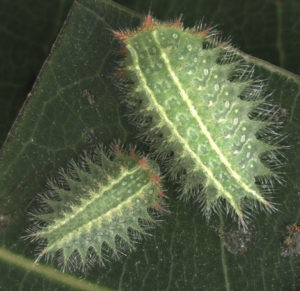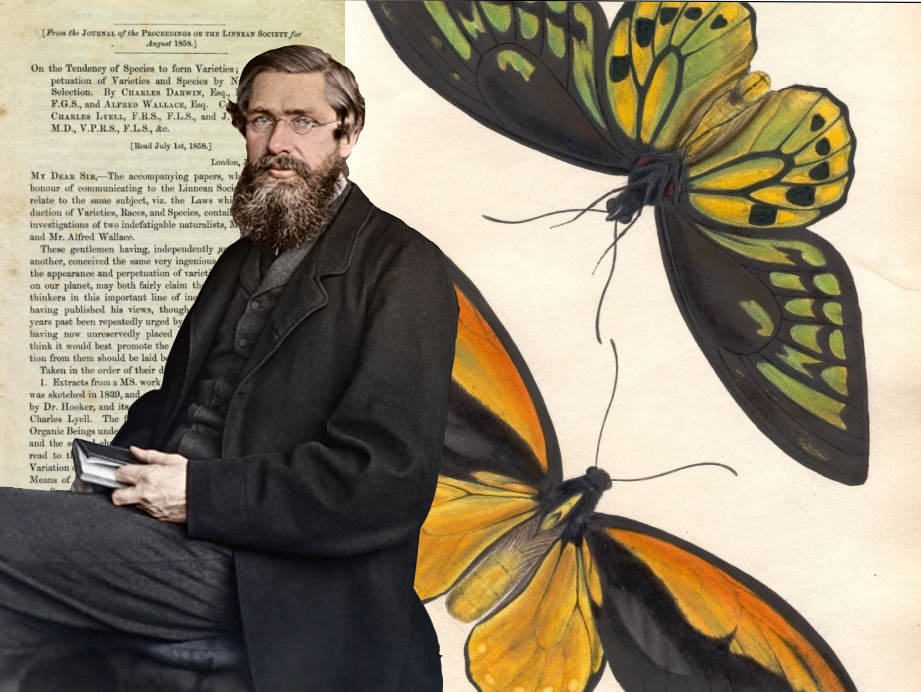Tuesday, October 8th
Alfred Russel Wallace: Insects and the Discovery of Evolution
Andrew Berry
Assistant Head Tutor of Integrative Biology
Lecturer on Organismic & Evolutionary Biology
Harvard University
In 1908, at an event to mark the 50th anniversary of the publication of the theory of evolution by natural selection by Charles Darwin and Alfred Russel Wallace, Wallace addressed a simple question: why did it fall to him and Darwin (who had died a long time previously, in 1882) to make the discovery? Why had the simple insight that is natural selection not occurred to other arguably more penetrating contemporary thinkers? Wallace’s answer: Beetles. Both he and Darwin started their careers as naturalists as avid beetle collectors. Historians of science have traditionally dismissed this claim as a typical instance of Wallace’s modesty, but I will argue that in fact studies of beetles — and other groups of insects — did indeed provide the scientific foundation of the Darwin-Wallace theory.
Tuesday November 14th
MCZ 101, 26 Oxford Street, Harvard University
07:30 PM
Charismatic Caterpillars of Limacodidae:
or how Limacodidae chose me as biographer of Harrison G. Dyar, Jr.
Marc E. Epstein
Senior Insect Biosystematist, California Dept. of Food and Agriculture
 When I began dissertation research on limacodid moths at the University of Minnesota I soon sensed that Harrison G. Dyar had an “inordinate fondness” for them, although he was known for his work on many families of Lepidoptera, as well as mosquitoes. I will take you on my journey of discovery, including an interview with his son about Dyar’s extensive tunnels beneath Washington, DC, an exploration of his double life, and other unusual attributes of his life. I will also touch on his life in Boston with his mother, Eleonora Rosella Dyar, a well- known medium, his time at MIT and as a member of your club publishing not only his famous paper on geometric growth of caterpillars, known as “Dyar’s Law” in Psyche, but also other papers, including the life histories of over 60 geometrid moths! Dyar spent most of a decade in Boston (1882-1892), interrupted only by summers near Rhinebeck, New York, and extensive western collecting trips.
When I began dissertation research on limacodid moths at the University of Minnesota I soon sensed that Harrison G. Dyar had an “inordinate fondness” for them, although he was known for his work on many families of Lepidoptera, as well as mosquitoes. I will take you on my journey of discovery, including an interview with his son about Dyar’s extensive tunnels beneath Washington, DC, an exploration of his double life, and other unusual attributes of his life. I will also touch on his life in Boston with his mother, Eleonora Rosella Dyar, a well- known medium, his time at MIT and as a member of your club publishing not only his famous paper on geometric growth of caterpillars, known as “Dyar’s Law” in Psyche, but also other papers, including the life histories of over 60 geometrid moths! Dyar spent most of a decade in Boston (1882-1892), interrupted only by summers near Rhinebeck, New York, and extensive western collecting trips.
A book signing will follow the talk.
The talk is free and open to the public. The meeting is readily accessible via public transportation. Parking is available in the Oxford Street Garage with advance arrangement, as described here, or (usually but not always) at spaces on nearby streets. Everyone is also welcome to join us for dinner before the talk (beginning at 5:45 PM) at the Cambridge Common, 1667 Mass Ave., Cambridge.
CEC meetings are held the second Tuesday of the month from October through May. The evening schedule typically includes an informal dinner (5:45 to 7:15 PM) followed by our formal meeting (7:30 – 9:00 PM). The latter begins with club business and is followed by a 50 minute entomology related presentation. Membership is open to amateur and professional entomologists.




